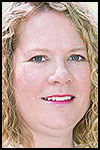Corena Killian: A new era for waste starts in our schools
Every day, I walk my daughter to school. Every day, we pass a residential construction site where litter is rampant.
Food and beverage waste is dumped on the ground. Small plastic scraps of packaging material, torn off carelessly to access package contents, are left to blow through the neighborhood.
Instructions for installing fixtures and equipment are routinely found on school grounds, roads and properties, along with discarded scraps of waterproofing and cardboard boxes of every size. Nails, screws, tape and scraps of PVC pipe and chemically treated wood are left uncovered, forever forgotten. Eventually, all this waste will be covered by fill dirt, top soil or concrete, forever to remain in the environment.
These same days, we pass copious amounts of other forms of litter, on and around the school grounds. Coffee and smoothie cups abound, along with plastic straws and lids, other plasticware, candy and cheese-stick wrappers, single-use chip bags, Ziploc baggies, and returnable cans and bottles galore.
Along our neighborhood streets, I find the same evidence of carelessness and lack of concern about our environment and community. I pass residences dotted with chip bags, paper towels, candy wrappers, beer cans, cigarette butts, hazardous spray-cans, discarded socks, abandoned crib covers, empty cracker boxes and chewed gum stuck to sidewalk and road surfaces.
In town, it’s not uncommon to pass public employees operating mowers on public grounds. You can witness them run over trash, shredding it into hundreds of minute, irretrievable pieces, either because they aren’t properly trained or don’t care.
The rubbish we walk by every day is a symptom of a huge problem. Our plastic-dominated, throwaway culture is killing the planet.
It’s well established that plastic enters our waterways and ends up in the ocean, where it disrupts natural eco-balance. As a result, marine life is dying of plastic ingestion and snaring.
Microplastics are increasingly found in the tissue of our food sources. Scientists are finding microplastics in fish, chicken, bottled water, beer and more. And we have yet to fully understand the impact of this problem on human life.
We have become so desensitized to trash we no longer see it. And that is sending a very strong message to our next generation: It’s not important. It’s someone else’s problem.
Littering is a crime. Most of us know this. Trash is unhealthy. Most of us know this too. Yet how many of us take responsibility for conducting cleanups and fostering public awareness?
This is our epidemic. We are failing the next generation if we don’t teach proper waste management and environmental responsibility.
But that situation can change through the collaborative efforts of environmental groups and educational entities.
Clean communities are healthy communities. It’s time for us to better educate ourselves and our kids about sustainability.
If there were a place where a substantial portion of our population gathered regularly, sustainable systems already existed, education was a core mission and open minds collaborated on solutions, perhaps rapid change could be achieved.
I submit to you this place not only exists, but is singularly positioned to lead McMinnville and Yamhill County in the Earth’s most recent geologic time period — the human-dominated Anthropocene. It’s the K-12 school system.
According to Jennifer Seydel of the Green Schools National Network, one in six people visit K-12 school systems on a daily basis to learn, teach or perform support functions. That makes our schools uniquely positioned to change the direction of our community and prepare our children for a far different future.
In November, the News-Register published an article about the many outstanding efforts the McMinnville School District is taken by to ensure their facilities are operating sustainably. What we need to complement that is an effort to provide them with the tools and skills to operate in this new environmental reality.
It is incumbent on our schools to take up the mantle. I respectfully challenge Yamhill County schools, public and private, to commit today to teaching sustainability to all students, grades K-12.
Gather your passionate teachers and enthusiastic students. Round up your community cheerleaders and interested stakeholders.
Invite sponsors like Oregon Green Schools, organizations like Zero Waste McMinnville and businesses like Recology Western Oregon — which employs our local Oregon Green Schools coordinator — to assist in the development of your sustainability program. Utilize all these resources to develop your plan and show McMinnville and Yamhill County just how amazing our schools are.
Our community will respond when our kids come home from school with new skills and tools for more sustainable living.
Parents will take an interest in and inspiration from what their children are doing. It will spread from there. It will be a testimony to our beautiful city when children and families commit to living sustainably, as a result of our schools’ commitment to teaching for the future our kids are facing.
Who’s in? I invite you to contact me at thegreenside@icloud.com to get this dialog started.
Corena Killian will present a free talk titled “Oregon Green Schools — Bringing Sustainability to the Classroom,” at a public Zero Waste McMinnville meeting set for 5:30 to 7 p.m. Monday, March 4, in McMinnville Public Library’s Carnegie Room. Visit zerowastemcminnville.org for additional information.









Comments